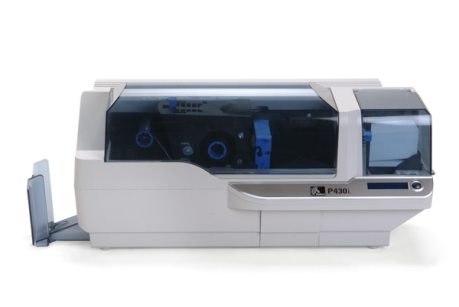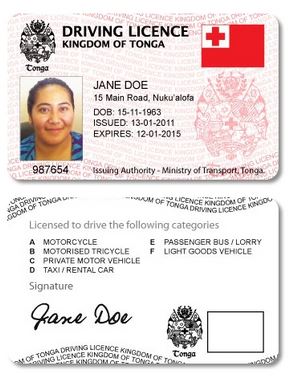Announcement posted by Comworth 21 Aug 2013
Pacific nations Vanuatu, Tonga and the Solomon Islands have benefited from substantially improved transport management thanks to the delivery of computerised systems to control drivers and vehicles. The public-facing component of the solutions are Zebra P430i networked card printers and Zebra Z105SL thermal printers, which deliver hologrammed credit-card style driver’s licenses and windscreen display discs on-site and on-demand.
Initially deployed in Tonga by Wellington-based specialist IT company Data Torque, the success of the Transport Management System in that country saw its introduction to Vanuatu and recently to the Solomon Islands.
Situation
The governments of these three Pacific nations used manual card-based systems to administer driver licences and vehicle registrations. Driver licences consisted of a paper booklet, offering little security of identification and were open to forgery or falsification. Vehicle licence discs were pre-printed on card, with the details handwritten and glued onto windscreens, each year. UV and heat would render the ink unreadable within months.
These manual processes were labour intensive, inefficient, and difficult to control. Customers would often have to queue for hours to get a driver licence or to pay for a vehicle licence.
Solution
Along with the implementation of Data Torque’s TMS (Transport Management System), specialist Zebra printers were introduced to produce high-security plastic driver’s licence cards and vehicle licence discs.
Len Smith, Data Torque Projects Director, explains that TMS is a comprehensive driver licensing and motor vehicle registry system, built on the latest Microsoft technologies. “The Zebra printers were chosen to provide reliable print solutions in challenging environments where heat and dust are the norm,” he notes.
The Zebra P430i is a dual-sided card printer designed and built for high-volume card production with exceptional reliability and performance. With a 300dpi colour dye sublimation or monochrome thermal transfer printing, it is capable of producing 102 dual-sided PVC cards per hour in full colour.
Smith says that while TMS delivers a fully-electronic system for the management of driver and vehicle licensing, the Zebra P430i plays a critical – and prominent – role. “The output from the Zebra is what the citizen receives and keeps in his or her wallet. It is the public ‘face’ of the whole solution, in other words.”
The driver’s licences printed by the Zebra include a photograph of the holder and their signature, as well as all relevant details such as licence type and any restrictions. Importantly, notes Smith, the cards are also embossed with a holographic imprint for a high level of security. “The cards are now very difficult to forge, addressing what was previously a commonly-encountered issue.”
Additionally, windscreen vehicle licence discs are produced by Data Torque’s TMS system. For this task, Zebra 105SL thermal printers produce tags on tough plastic coated media, using UV-resistant ink for durability and readability. These tags are embedded with a watermark to deter forgery.
Results
As a result of the quality output of the Zebra printers, Solomon Islanders, Ni-Vanuatu and Tongans now take pride in their driver’s licenses, says Smith. “Not only do the governments now have technology which is the same as that used by every first world country, but the citizens feel like they are getting value for their money.”
He says people are even seen to pose for a photograph with their new driver’s licence outside the licensing offices. “They get a great-looking, secure and durable credit card licence. The Zebra-printed cards have captured the imagination of the people, who actively want an official licence card and which they are happy to pay for.”
While the introduction of the solution in the Solomon Islands is a relatively new development, Smith says TMS – and Zebra – have powered the Tongan and Vanuatu drivers licence production process for some three years now. “The Zebras operate in a hot, dusty environment and over the course of those three years, they haven’t missed a beat.”
The demand placed on the machines is quite substantial, too. While the total populations of the island nations are modest (Tonga 103 000, Solomon Islands 523 000 and Vanuatu 245 000), Smith says in excess of 20 000 licences are printed by each machine annually. “When the new system was first introduced, people queued out the door to get their driver’s licence, which provided some solid stress-testing for the machines which nevertheless kept up with the heavy demand,” he notes.
Backed by Data Torque’s TMS system, with a Zebra printer producing a high quality card on the spot, the time taken to get a driver’s licence in Tonga, Vanuatu and the Solomon Islands is greatly reduced, while the back office administration and revenue collection is improved. Additionally, the security features built into the cards now makes them suitable for use as identification in banks and other situations.
“Zebra printers have proven their suitability over the long-term, resulting in satisfied customers in the governments of these nations – and satisfied citizens who feel they have a quality product in their pocket,” Smith concludes.




